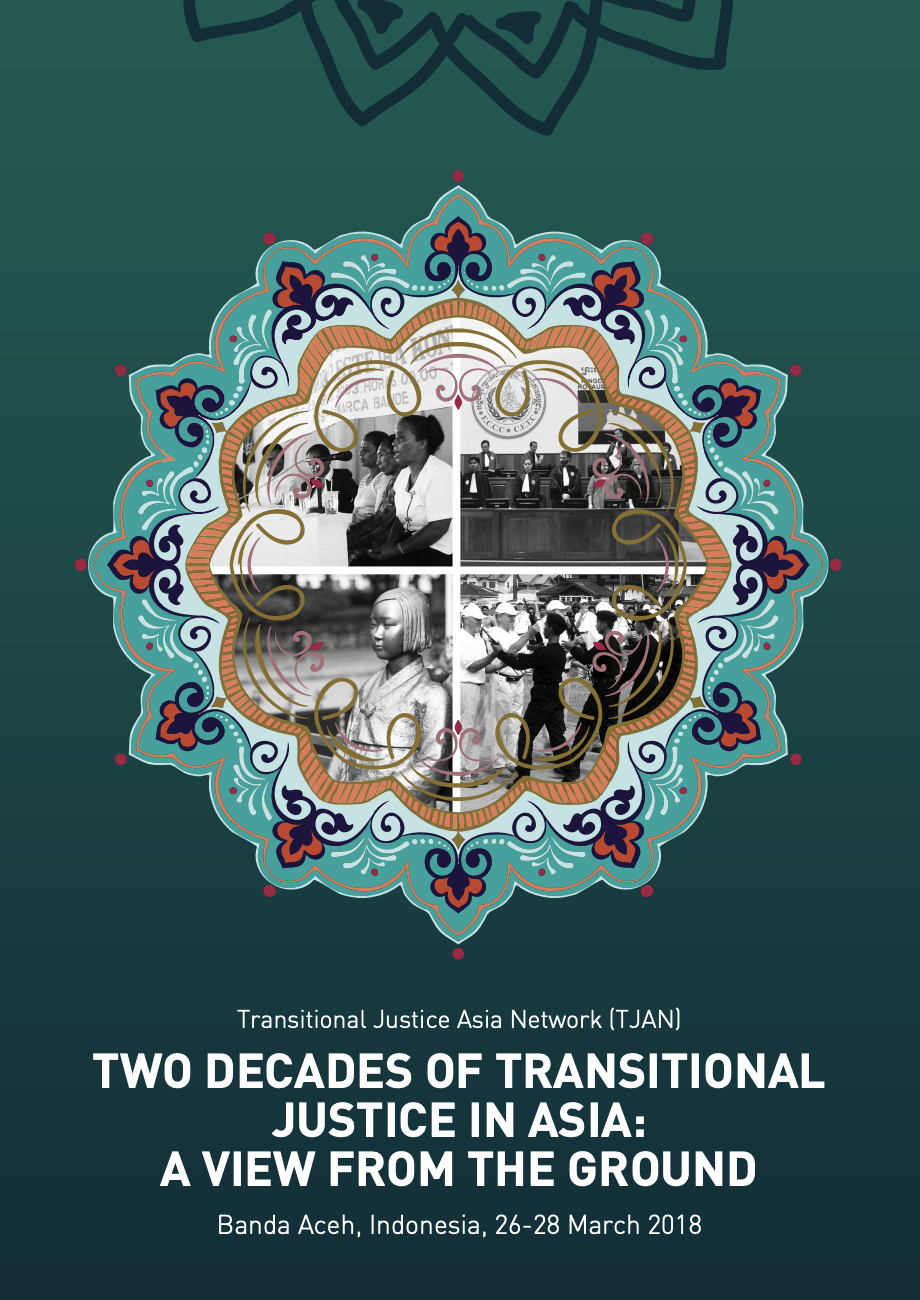The workshop on Two Decades of Transitional Justice in Asia was conducted in Banda Aceh, Indonesia, on 24-26 March 2018. Read our post-event article here.
Over the past two decades, the field of transitional justice (TJ) has developed into a worldwide movement, providing important, but partial and imperfect answers to the question of what should be done about mass violations in order to achieve justice, sustainable peace, and prosperity. Impunity and a lack of accountability for crimes committed by the elites and security forces are the norms across the Asia region, making the kinds of TJ interventions that have taken place in Latin America and Europe difficult to achieve. Nevertheless, Asian nations have drawn from international experience and utilized a range of transitional justice mechanisms including courts, truth commissions, institutional reform initiatives, and some limited form of reparations programs.
To better understand the role of transitional justice mechanisms in the Asian context over the last twenty years, Asia Justice and Rights (AJAR), in partnership with KontraS Aceh, Legal Aid Institute Banda Aceh, Transitional Justice Asia Network, and the Tifa Foundation convened a three-day workshop entitled “Two Decades of Transitional Justice in Asia: A View from the Ground.” Thirty-five experts and stakeholders from Indonesia, Timor-Leste, Myanmar, Philippines, Thailand, Cambodia, Nepal, and Bangladesh gathered together to share their experiences and to discuss key lessons, challenges, and strategies for strengthening accountability in Asia. Participants also had the opportunity to learn more about the Aceh peace process and the Aceh Truth and Reconciliation Commission (TRC) through a reception at the residence of the Aceh governor where representatives from the peace talks spoke and through a field visit to the Aceh TRC and the Aceh Museum of Peace.
